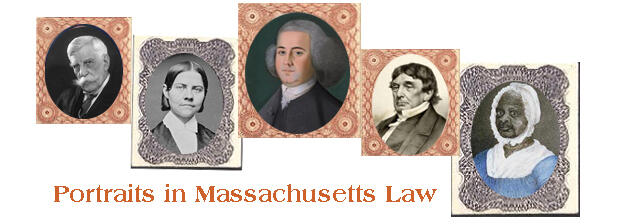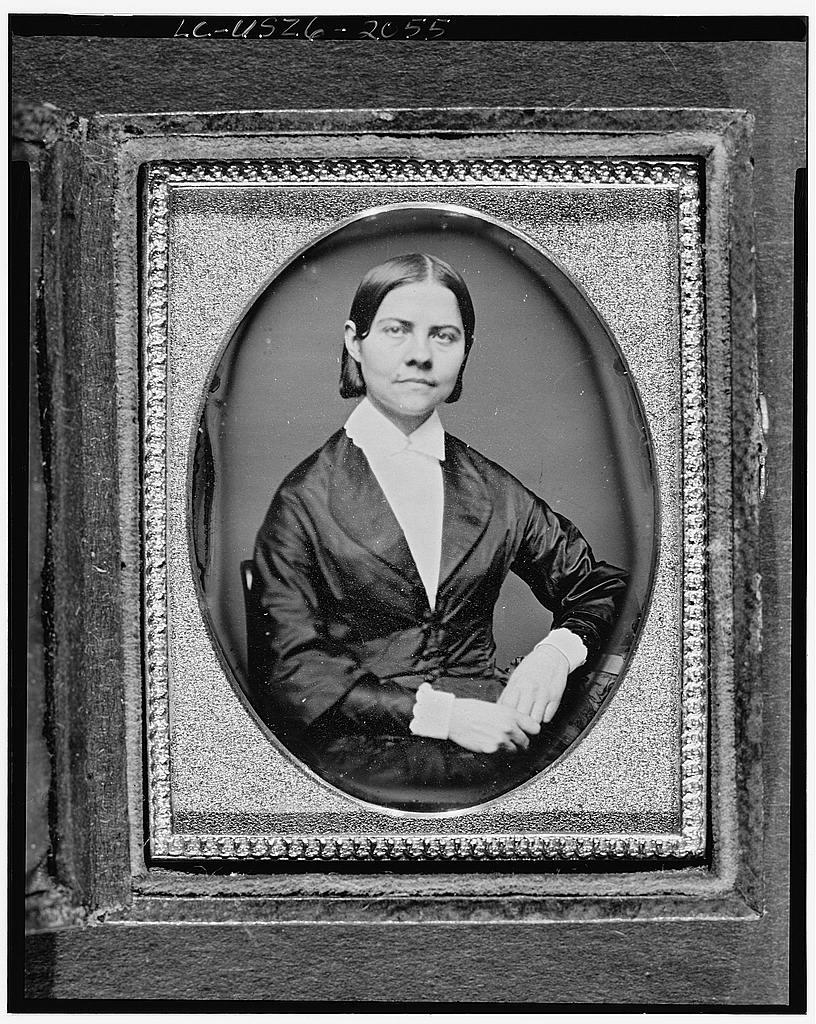- Trial Court Law Libraries

These pages provide links to biographical information abut people who have been particularly important in legal history in Massachusetts, as our government took shape in the cauldron of the American Revolution and grew and changed throughout the nineteenth and twentieth centuries.
“Lucy Stone was noteworthy for many things. She was the first Massachusetts woman to take a college degree. She was the ‘morning star of the woman’s rights movement’, lecturing for it, in the ten years from 1847 to 1857, to immense audiences all up and down the country. She headed the call for the First National Woman’s Rights Convention. She converted Susan B. Anthony and Julia Ward Howe. She was the first married woman to keep her own name. She organized a nation-wide association in which those suffragists could work who did not wish to have equal suffrage mixed up with free love and other extraneous questions. She founded and edited the Woman’s Journal of Boston, which was the principal woman suffrage newspaper of the United States for almost half a century. She was a striking example of single-hearted and lifelong devotion to a great idea.”
– Alice Stone Blackwell, Lucy Stone: Pioneer of Woman’s Rights (1930)
While Lucy Stone’s daughter, Alice Stone Blackwell, gives us a good summary of Stone’s accomplishments in her 1930 book, here is an example of one the many noteworthy things that might also be included in a portrait of Stone:
“Returning to New England in the spring of 1869, Lucy lectured in various communities in Massachusetts, Maine, and Rhode Island. In March, she and [the abolitionist, orator and attorney Wendell] Phillips, addressed the Joint Special Committee of the Massachusetts state legislature, urging officials to ‘squelch’ the word ‘male’ from the state constitution. Massachusetts women had conducted a major petition drive demanding suffrage, hoping the state would be the first in the nation and perhaps in the world to get ‘the ball rolling’ . . . In an unexpected but happy outcome, the chair of the Committee was so impressed with their arguments that he said he would recommend a bill in support of women’s suffrage. Lucy truly believed that ‘with a little help.’ Massachusetts could become the first state to remove the word ‘male’ from its constitution . . . [W]hen the committee’s recommendation was brought before the entire Massachusetts legislature, elected representatives rejected it.”
– Sally G. McMillen, Lucy Stone: An Unapologetic Life, Oxford University Press, (2015)
Not until 1920, 27 years after Lucy Stone’s death in 1893, would women gain the right to vote in the United States by the ratification of the 19th amendment to the U.S. Constitution.
Lucy Stone (between 1840 and 1860), Daguerreotype collection (Library of Congress)

